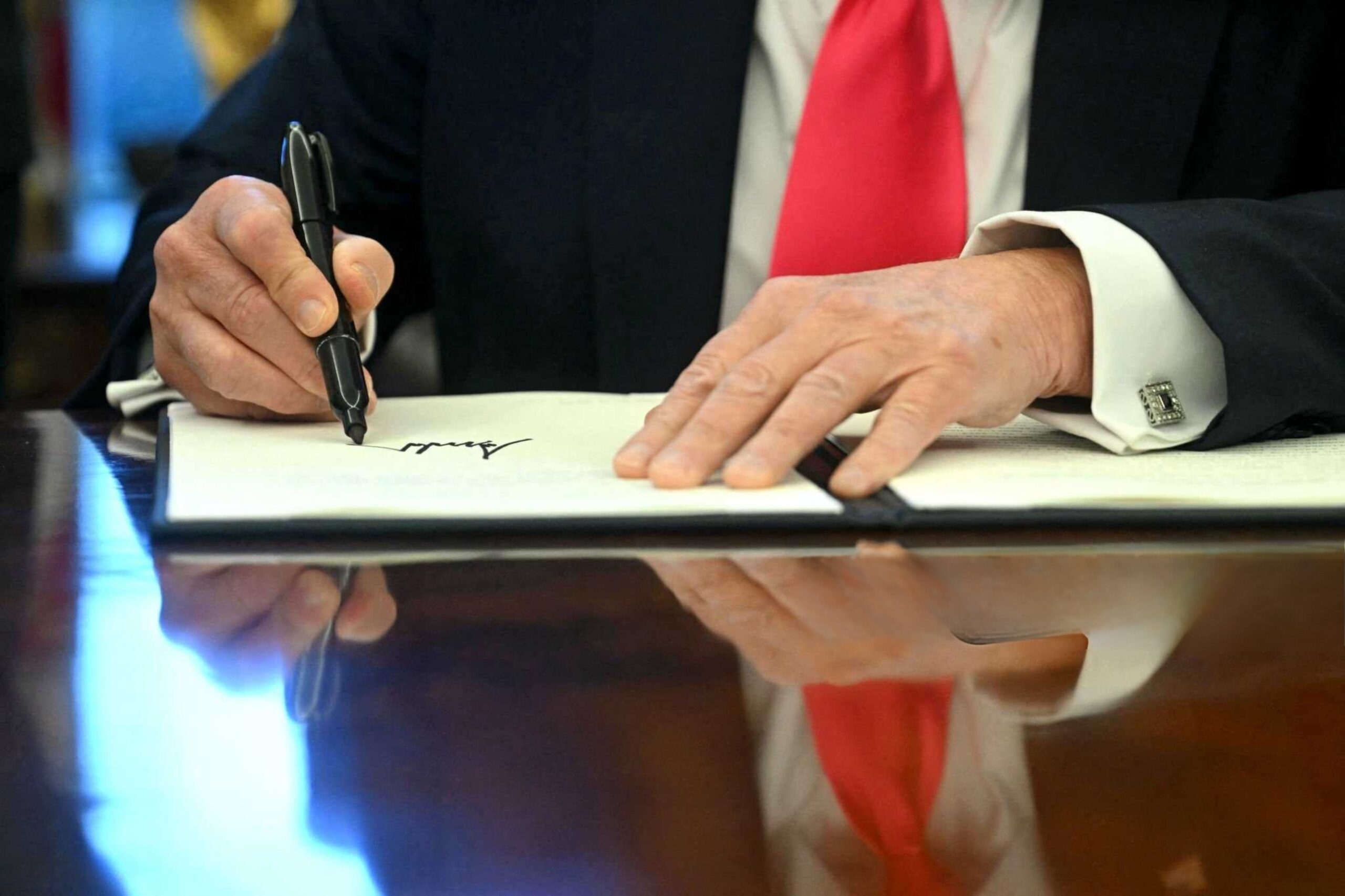Posts tagged federal workforce
Bill to nullify Trump’s union executive orders introduced by 48 senators
September 18, 2025 // All Senate Democrats and Sen. Lisa Murkowski, R-Alaska, have signed on as sponsors of the Protect America’s Workforce Act, while the measure is just two signatures away from guaranteed floor debate in the House.
A fresh executive order aims to ban unions at more federal agencies
September 3, 2025 // The targeting of additional agencies and their respective unions comes as the Trump administration has begun formally terminating collective bargaining agreements at more than half a dozen agencies, despite assuring federal judges that such a step wouldn’t be taken until the conclusion of litigation surrounding the executive order. The Ninth Circuit Court of Appeals this week signaled that it will consider reversing a prior decision to allow the edict to go into effect.
New lawsuit scrutinizes Hegseth’s implementation of Trump’s anti-union EO
July 30, 2025 // While previous lawsuits argued simply that President Trump’s citation of the 1978 Civil Service Reform Act’s so-called “national security exemption” en masse violated federal regulatory law, a new suit from IFPTE drills down on the Defense secretary’s implementation of the controversial edict.
Supporters of Trump’s agency cuts still favor nonpartisan federal workforce, survey shows
July 24, 2025 // In a recent survey, the Partnership for Public Service found that among individuals who approve of the Trump administration’s cuts to federal agencies, there is little support for a politicized federal workforce. The survey results showed that 83% of supporters of the Trump administration’s cuts agreed that having an expert and non-political federal workforce was “critical” to the country’s wellbeing.
Supreme Court clears way for Trump to downsize the federal workforce
July 10, 2025 // The labor unions and nonprofit groups that sued over the downsizing offered the justices several examples of what would happen if it were allowed to take effect, including cuts of 40% to 50% at several agencies. Baltimore, Chicago and San Francisco were among cities that also sued. “Today’s decision has dealt a serious blow to our democracy and puts services that the American people rely on in grave jeopardy. This decision does not change the simple and clear fact that reorganizing government functions and laying off federal workers en masse haphazardly without any congressional approval is not allowed by our Constitution,” the parties that sued said in a joint statement.
Supreme Court likely to decide fate of federal unions
June 30, 2025 // How the Supreme Court will view the matter is anybody’s guess, though the Roberts Court has shown deference to the executive branch and a willingness to revisit precedent involving public sector unions. In its 2018 Janus v. AFSCME ruling, the court said public sector employees could not be forced to join a union as a condition of employment. Federal government collective bargaining is relatively recent, having only been codified in 1978. The Roberts Court may decide collective bargaining is a privilege, not a right, for federal workers.

Trump accelerates push to reward loyalty in federal workforce
June 16, 2025 // Vinnie Vernuccio, president of the Institute for the American Worker and member of the transition team for the labor department in Trump’s first term, said that it is costly and time-consuming to try to fire workers, and a new rule to reclassify policy-related positions would make it easier for the administration to ensure their reforms aren’t hindered. “These career employees could throw sand in the gears for policies they don’t like,” Vernuccio said. Vernuccio added that the rule change would affect only career federal employees in policymaking roles, which OPM has estimated is about 50,000 positions, or about two percent of the Federal civilian workforce. “The sky is not going to fall,” Vernuccio said.

Trump Executive Order on Public-Sector Unions Clears Latest Legal Hurdle
May 26, 2025 // These policies have been generated in response to the snowballing effect of public-sector labor unions, whose bosses have swamped government agencies with an inefficient and excess allocation of funds. Because of these union boss abuses, tax dollars have even been paying full-time salaries to union boss lobbyists working to secure themselves higher wages for doing less work. Additionally, the Institute for the American Worker has found that the time and resources spent on collective bargaining has likely cost hundreds of millions of dollars for the taxpayer. As demonstrated, banning collective bargaining with public-sector unions at national security agencies is not only a feasible plan, but one which could return millions to the American taxpayer, increase the efficiency of the government, and allow agencies to reorient themselves toward their actual purpose and mission.
Trump’s mass layoff threat drives US government workers to resign
May 21, 2025 // Mass resignations driven by fear of firings Trump and Musk aim to cut federal workforce by 12% Unions angry over perceived harassment, forced resignations Tens of thousands of U.S. government workers have chosen to resign rather than endure what many view as a torturous wait for the Trump administration to carry out its threats to fire them, say unions, governance experts and the employees themselves. President Donald Trump signed an executive order on taking office to dramatically slash the size and cost of government. Four months later, mass layoffs at the largest agencies have yet to materialize and courts have slowed the process.
Judge orders temporary halt to Trump administration’s mass layoff plans
May 10, 2025 // U.S. District Judge Susan Illston in San Francisco sided with a group of unions, non-profits and local governments, and blocked large-scale mass layoffs known as "reductions in force" for 14 days. "Federal courts should not micromanage the vast federal workforce, but courts must sometimes act to preserve the proper checks and balances between the three branches of government," wrote Illston.
